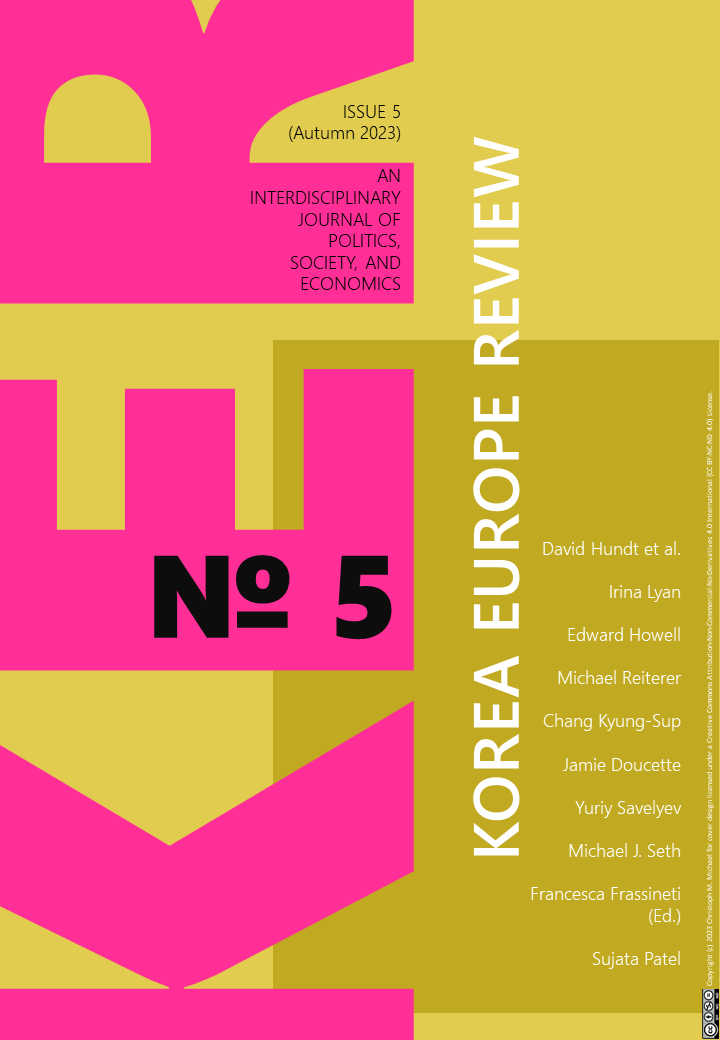South Korea’s “3-D” Problem: De-risking and Diversifying in Response to China’s Economic Coercion
DOI:
https://doi.org/10.48770/ker.2023.no5.29Keywords:
diversification, decoupling, de-risking, coercive trade measures, informal sanctions, international trade, FTAs, China, South Korea, THAADAbstract
China has used coercive economic measures against South Korea since 2017 to retaliate for the installation of the THAAD anti-ballistic missile system, but little is known about the Korean strategy for responding to these measures. Informed by interviews with foreign policymakers, business leaders, and scholars of international relations in Korea, this essay reinterprets the politics of international trade in an age of great-power rivalry from the perspective of middle powers. It does so by using Albert Hirschman’s insight that great powers tend to abuse the influence that stems from holding a dominant economic position against their smaller international counterparts, but in so doing create incentives for middle (and small) powers to reduce their exposure to such asymmetric trading relations. We use three cases to illustrate how South Korean firms and policymakers have responded with a strategy that seeks to manage the risks of co-existing with China (“de-risking” and “diversification”) rather than completly escaping from the Chinese economic orbit (“decoupling”). In doing so, we illustrate the impact of and limits to coercive statecraft and the strategy that Korea has pursued in response to its “3-D” problem.

Downloads
Published
How to Cite
Issue
Section
License
Copyright (c) 2023 David Hundt, Baogang He, Dominic Simonelli

This work is licensed under a Creative Commons Attribution 4.0 International License.


